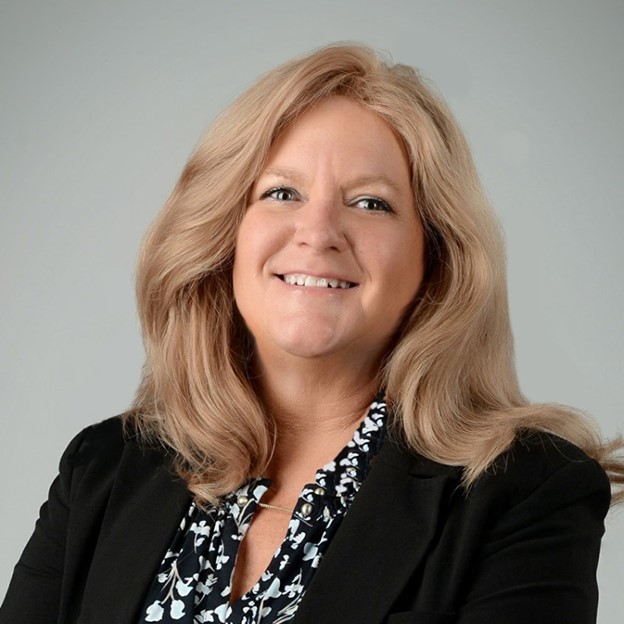Interview with Carrie Goetz, Best-Selling Author | Women in Data Centers
Thursday, March 7, 2024
(0 Comments)
Interview with Carrie Goetz, Best-Selling Author | Women in Data Centers 
AFCOM: What does your day-to-day look like? What are your favorite parts of your job and have they evolved over time?
It's definitely evolved. I've been in almost every part of this industry you can be in. So it's definitely evolved over time. A typical day is a hot mess. I write, but I also do a lot of consulting. And so I change between multiple hats and switch between multiple projects. I'm either doing technical writing, I'm writing a book or I'm working on a project. So my day is different every day. AFCOM: What is the technical writing that you do? I do a lot of whitepapers, blogs, that kind of stuff for different companies all across the industry. AFCOM: What is your favorite aspect of your job?
It's just the industry as a whole, because it always changes. There's always new technology, there's always an opportunity to learn. And once you get into that cycle, it's addictive. You can't stop learning if you're one of those people that likes to learn. AFCOM: What industry trends or emerging technologies have made you most excited? And what do you personally hope to accomplish? By say, 2030? Isn’t that the reason we moved to Florida? That is my goal. I want to retire by then. But, I do think new technologies, AI, machine learning, really stand the chance to change things. So if you think about it from the perspective of if we really embrace diversity—diversity in thought, expression, experiences, all of it. I think of it like fingerprints, because every fingerprint is unique, and every person is unique. So we start bringing people into the industry from all different backgrounds, people that used to be mechanics, or people that worked in a factory and people that worked in a warehouse and people that were babysitters and people that were artists and writers. Now think about putting that collective mind together to solve a problem. AFCOM: Do you think writing your book has been the accomplishment that is most important to you? I've gotten a lot of awards and a lot of accolades, and I'm very humbled by that, and certainly, so appreciative and grateful. But to me, the thing that makes the most is seeing somebody's life change because I had input in it, and it made a difference. So whether that's, you know, helping someone out with a design that actually helped them get the sale, so they feed their family a little better, and they learned a little bit along the way, Or maybe it’s that somebody reads the book, and then I get these really great notes back and letters back about what it meant, or you know, how it helped them in some way. Or they asked questions. Those are the things that that really, that's what really warms my heart. That's, to me, those are the accomplishments.
When I started in this industry, there were no women. I taught a class that had about 1500 people in it on networking, when nobody even knew what that was. There were three women in the room. Me, the woman that scanned the badges at the door, and one woman that was actually in the industry. Now it's so different. There's so many women. I've brought a lot of women networking groups together and just being able to build up that positive reinforcement and positive dome over somebody, that's where it's at. AFCOM: What do you think this industry could do to empower women–not just women, but anyone who has been marginalized by the tech world–whether they’re just coming into the field or later in their career? First off, I think that we need to talk about more than coding when we talk about the tech industry, and we need to begin at a very young age. It's really unfortunate that most kids only exposure to tech is coding, because coding is not for everybody There are a million tech jobs around—from the person that digs the trenches, and the person that turns the earth over with the bulldozers to the Masons, the carpenters, the electricians, the plumbers, the networking folks, server teams, all of that is part of tech and part of this industry.
This is part of why I wrote my book. I have a friend in the industry with two young kids. She went to their school and wanted to talk to them about data centers. And the teacher said, I'm sorry, that's not on the curriculum. You can't do that. And I thought, well, what if there was a book on data centers and how the industry works, then you could read a book. Now we can read a book and a story about us. So we talk about the people that run the cable under the sea, to satellites, and what's in a data center and how it gets there. I made it about a kid sending a smile to a grandma, and how it gets to the data center for her grandma to get later. Yeah. And so I think we have to start those conversations much earlier. AFCOM: Do you have specific advice for people entering the field right now? Networking is absolutely critical. Be an active participant in what you don't know. If somebody turns you down, and you ask them a question, just go ask somebody else, but start building that body of knowledge because the more you know, the better it is.
Please keep an eye out for the next release of our "Women in Data Centers" interview series.
|